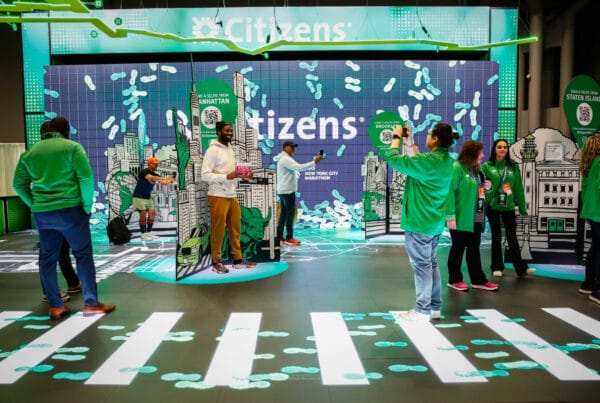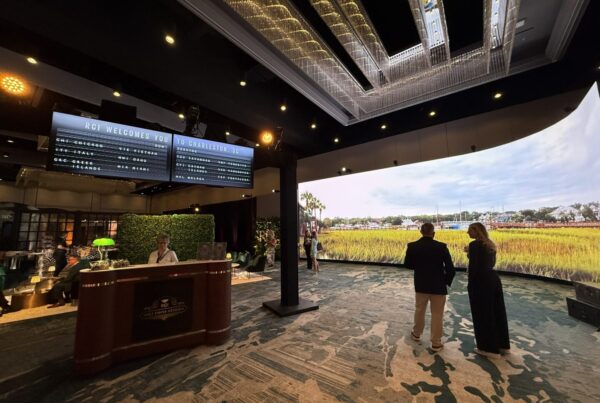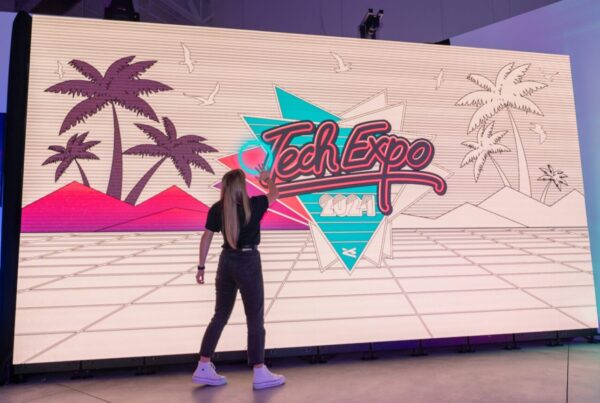What makes an impactful meeting? Heck, what just makes a good meeting? It’s an important question to answer. According to software company Atlassian, employees attend about 62 meetings per month—50 percent of which are considered a waste of time. During meetings, employees tend to engage in a whole host of activities, from completing other work (73 percent) to daydreaming (91 percent) to even sleeping (39 percent).
It’s a problem that meeting planners wrestle with every day. Even when you know the information being conveyed is vital, it ends up going off with a thud. Then, you’re left wondering why you had the meeting in the first place. In some cases, the problem is the actual content of the meeting, but often, the root of the problem is something else entirely.
Everything from visuals to the environment to the presentation flow plays a part in employee engagement. If one element is out of place, it throws everything else off. But how do organizers tackle all the things required to make meetings more stimulating and engaging? How do they create experiential moments that prevent death by slideshow? Without a dedicated team of event planners taking on every meeting, it might seem like an impossible task.
 Thankfully, modern leaders and their event organizers can rely on technology to help plan, promote and execute their meetings or events—ultimately maximizing their effectiveness. Here are some tools that can turn meetings from snooze-fests into memorable experiences.
Thankfully, modern leaders and their event organizers can rely on technology to help plan, promote and execute their meetings or events—ultimately maximizing their effectiveness. Here are some tools that can turn meetings from snooze-fests into memorable experiences.
1. Social Media
Social media isn’t just a great promotional channel for public events; it can also make routine meetings more memorable and help event management planners create a better experience each time. IMEX America, for instance, opened with a Facebook Live tour of the show floor, allowing virtual event attendees to immerse themselves in the brand experience, even though they weren’t physically present.
By making a meeting interactive and shareable, you help it stick in attendees’ minds and create an emotional connection. Thus, what goes on in a meeting doesn’t fade away as soon as people leave the conference room. This is just the tip of the iceberg, though. Social media can be used to capture feedback about the meeting or interact with speakers and planners in real-time. It can also provide better ways to engage attendees as well as opportunities to collaborate and network. In this way, every meeting can become a trending topic in the office.
2. Dynamic Format Displays
If you’re still relying on a projector and Microsoft PowerPoint, it might be time to take another look at the world of displays to make meetings more immersive. While a single screen can still be effective, it’s easier than ever to combine multiple screens, different types of displays, and even lighting arrangements to create a more expansive canvas.
Companies like Samsung, for example, utilize a variety of screens to create dynamic, engaging, and unique experiences at product launches to deliver the brand’s message. While it’s not totally necessary to make attendees feel like they’re walking on water, the right visual aids can do wonders for keeping them interested during your next event.
3. Audience Engagement Tools
There have never been better options for connecting with your audience during a meeting. Applications like live slide-sharing tools offer new ways for attendees to participate in polls and question-and-answer sessions, giving everyone a chance to feel part of the conversation. Because most of these tools have smartphone apps, they don’t even require any fancy hardware.
4. Remote Participation
Webcasts allow everyone in the company to join in on a meeting when you can’t have an in-person event. In a recent experiential marketing event, Marshmello performed for 10.7 million people inside the video game, “Fortnite.” If large influencers can hold live events for millions of people, you can bring your remote employees and clients into your meetings. Hybrid events can deliver both virtual experiences and live experiences. Virtual reality also holds a new way for remote participants to engage. Rather than expecting people to have a meeting in one window (while working on three other tasks on their laptops), planners can use VR live streaming to make viewers feel just as present as those actually in the room.
5. Event Platforms
Event planning effectively involves monitoring a lot of moving targets—new event platforms, however, can alleviate some of the pain. Rather than using a variety of tools, event platforms can streamline the process, creating a one-stop-shop for organizing event experiences. This eliminates some of the roadblocks that can pop up along the way.
Even the smallest events can gain major points by leveraging the right tech to compress time, boost communication, and provide exceptional immersive experiences. Now is the perfect time to bring your meetings into the modern age and turn them into dynamic personalized experiences that your target audience will not forget.
Originally published on SmartMeetings.











